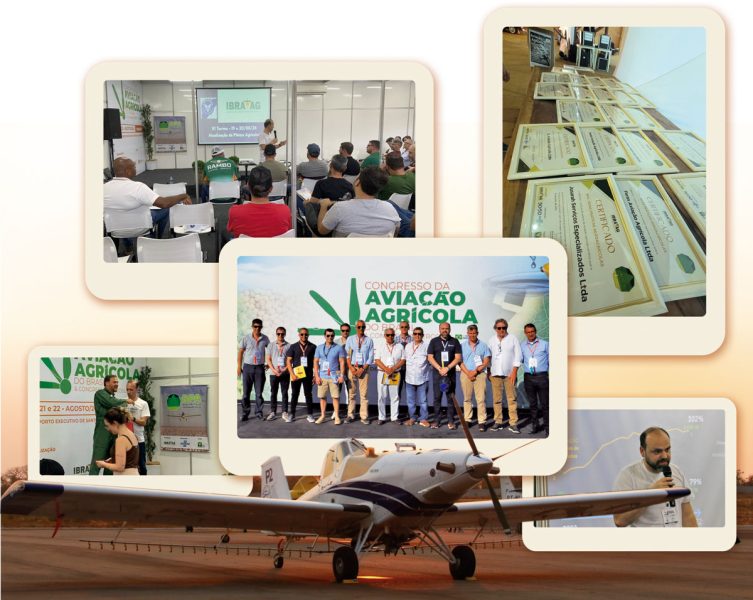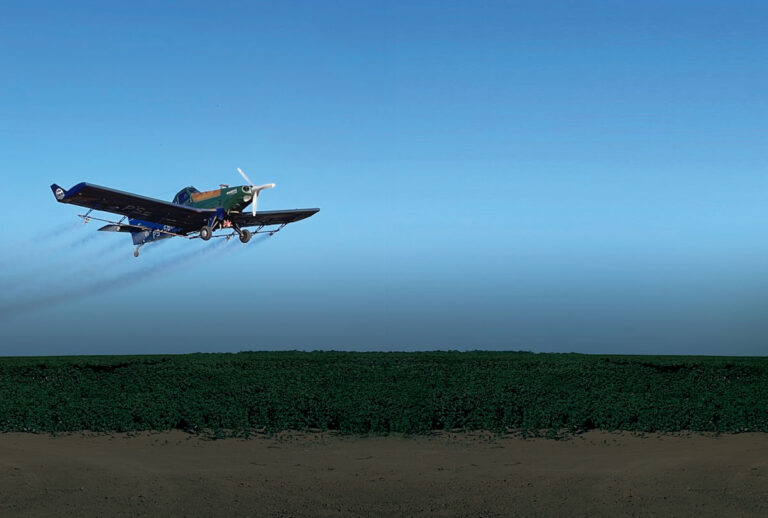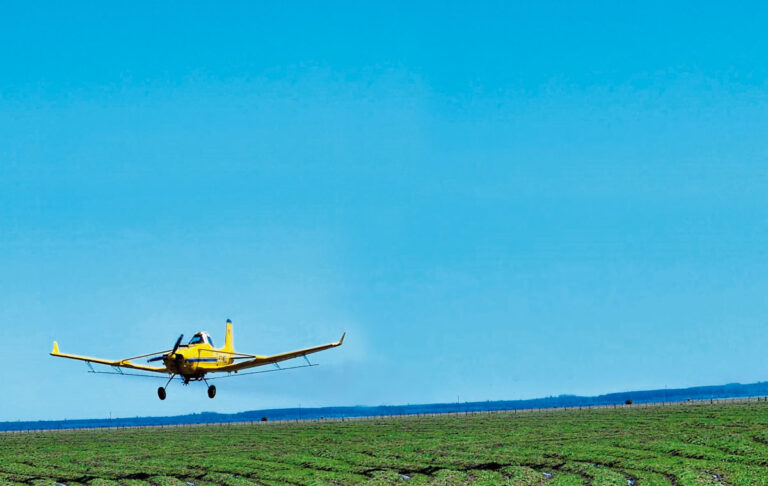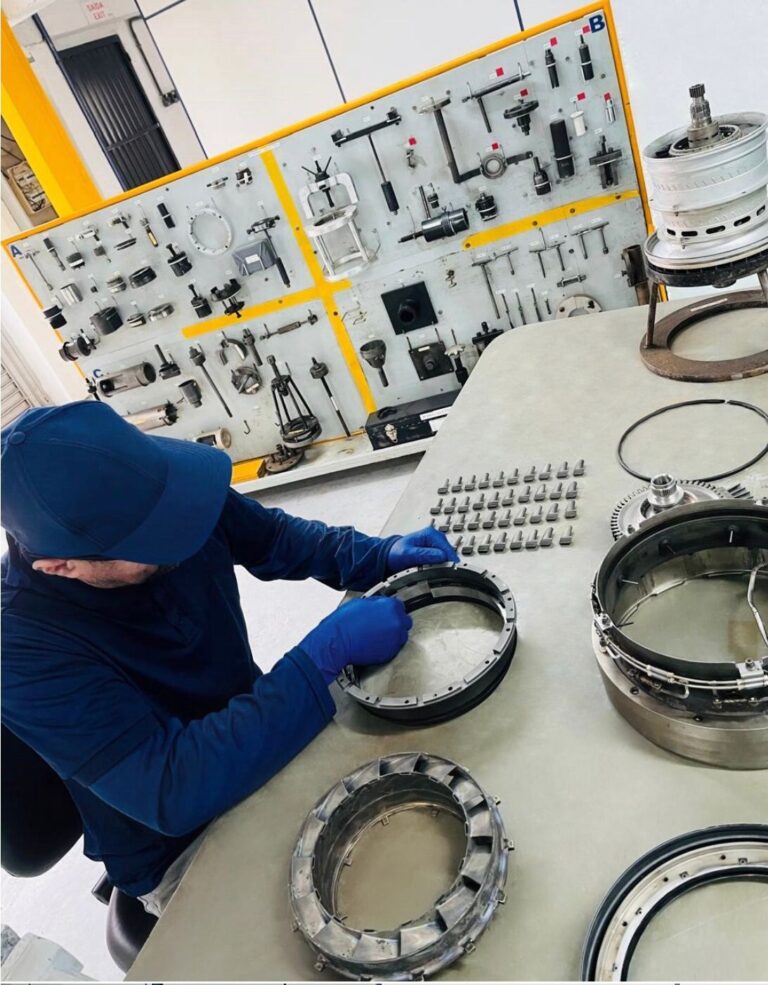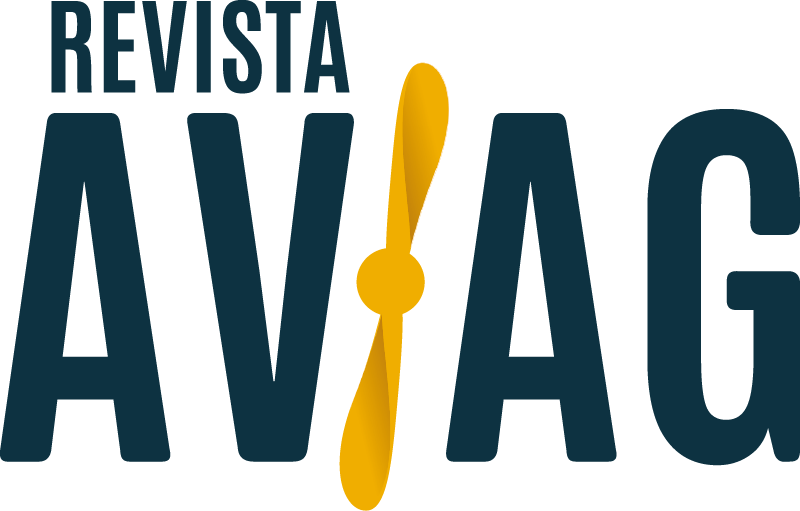“We need to invest in research, we need to update ourselves, we need to train ourselves. There’s no more room to live on trial and error.” The words of the president of the Brazilian Agricultural Aviation Institute, Júlio Augusto Kämpf, reflect a change in behavior in the sector, which has started to invest in efficient administrative and operational management, with the aim of staying in the market, as well as optimizing all the cutting-edge technology on board the aircraft.
In order to meet the needs of the sector, the organization has been developing refresher courses, seeking closer ties with higher education institutions for the production and transmission of knowledge, and establishing partnerships. This range of actions has been developed by the Institute, with the support of the National Union of Agricultural Aviation Companies (Sindag), which also has a series of projects in its portfolio aimed at maintaining a standard of excellence in agricultural operations.
Sindag’s operational director, economist and Doctor of Business Administration Cláudio Júnior Oliveira, stresses that the political and economic times call for an aligned, efficient and safe sector. “For example, every pilot needs to understand that when he flies in accordance with the precepts of good agricultural practices, he is representing the entire sector, not just his company,” he points out. He recalls that: “It’s one thing not to run out of food; it’s quite another to deliver safe food and it’s quite another to convey a positive image of the activity”. Agricultural aviation must focus on these issues.
GROWING
This is all the more important given the projected 9.6% increase in the Brazilian aerial fleet by 2027. In absolute numbers, the volume of piloted aircraft flying in Brazil is expected to approach 3,010 units. The data from the research carried out by Dr. Cláudio Júnior Oliveira, presented at the Agricultural Aviation Congress, which took place in August in Santo Antônio de Leverger/MT, also shows a potential turnover of around R$1.7 billion. The figure refers exclusively to the sale of domestic and imported aircraft.
As the calculations are based on fleet data over the last 15 years, Júnior Oliveira points out that there may be some variations in relation to sales perceptions. Even so, this is a significant market that requires operators to continue building the culture that agricultural aviation is safe, efficient and sustainable in order to keep growing.
NEW CULTURE
And the sector is already turning to practices within the concepts of ESG (Environmental, Social and Governance), which make up the United Nations (UN) Global Compact, to which Sindag has been a signatory since 2016. The idea is to change the way society perceives the sector, starting from the inside out. So much so that Ibravag, in partnership with the Brazilian Micro and Small Business Support Service (Sebrae Nacional), has been developing the Good Agricultural Practices (BPA) Brazil program.
The project, which is supported by Sindag and CropLife Brasil, is based on the principle of efficient administrative and operational management, bringing companies in the sector to a new level of competitiveness. The announcement of the opening of the program already envisioned a paradigm shift, involving the entire aero-agricultural chain, including top personnel – pilots and ground staff. So much so that the BPA includes courses such as the Agricultural Pilots Refresher.
For Cláudio Júnior Oliveira, who is a senior consultant and responsible for the BPA’s Training and Mentoring Management Methodology and coordinator of the MBA Management, Innovation and Sustainability in Agriculture, which is under the Sindag umbrella, changing the perception of a sector requires building on important values that come from the past. However, he points out: “First, we need to eliminate bad values, starting with the way we name products. We must reinforce the value of efficiency, positive communication with the customer and with society.”
“There is no more room for amateurism”
Economist Cláudio Júnior de Oliveira, who holds a master’s degree in Creative Industry and a doctorate in Business Administration from Unisinos, explains that changing society’s perception of the sector involves positive communication with suppliers and customers, including neighbors. In this context, he highlights the figure of the pilot. “A pilot can’t just know how to fly and apply. They need to be able to inspire. Pilots need to be agents of transformation,” he says.
Agricultural pilot Nilton Luiz Lima de Moura shares the same opinion. “There is no more room for amateurism in the sector, both for the operator and the pilot. We need to be professional in order to build customer loyalty and avoid misunderstandings,” he observes. He has been involved in aviation since 1975 – he was a paratrooper – but started flying 20 years ago and is now doing his 16th season as an agricultural pilot at the age of 60.

Nilton Moura points out that during the off-season, planning for the next application season begins
His vast experience in the sector doesn’t take away from his desire to constantly improve. At the invitation of the company where he works, Moura took advantage of the off-season to take the Agricultural Pilots Refresher Course in Porto Alegre/RS, in July, and stresses the importance of seeking out new knowledge. “The more training and preparation we have, the better the results, both in terms of the quality of our work for our clients and our safety,” says the commander.
By the way, operational safety is one of the major concerns of the aero-agricultural sector. So much so that in the course there is a whole module focused on the fundamental items to avoid unpleasant situations for the pilot, the company and the client. To this end, everyone in the company, including office staff, is involved in the operation.
With this in mind, the companies are compiling experiences and the best way to get around unusual situations during operations. Moura, who takes off from Mirim Aviação Agrícola’s base in Arroio Grande/RS to serve crops on the border between Rio Grande do Sul and Uruguay, a very windy region, is using the time between flights to draw up a report on the applications made in the past harvest. The document should contain the technique used with each product, how the equipment works and the type of engine.
All of this, says the pilot, will be used to plan the next harvest. The data also allows for the creation of a protocol, based on a previous occurrence, which indicates a plan of action depending on the situation. This work is in line with the aims of efficient and safe applications, as well as with the Zero Accident program developed within the operator.
The market is looking for more than good pilots and applicators

Fábio Severo, Jacaré, observes that pilots are a reflection of the company
Further proof that the culture of the agricultural sector has changed comes from Rosário do Sul/RS. Aero Agrícola Cordilheira was one of the companies that encouraged its pilots to take the Agricultural Pilot Refresher Course that took place in Porto Alegre/RS, 388.9 kilometers from its base. The operator’s managing partner, Commander Fábio Severo, known throughout Brazil as Jacaré, considers it essential that professionals in the sector are always seeking further training.
For him, when it comes to hiring, pilots need to know more than just how to fly and apply. As well as flying safely, commitment and responsibility, good relationships and good conversation are part of the predicaments sought after by business people. Severo explains: “Unlike a commercial pilot, who is isolated in a cockpit, agricultural aircraft captains are a reflection of the company, as they have to deal with farmers, agronomists and agricultural technicians.”

Severo points out that Ibravag’s course covers topics related to operational safety, from flight care to the pilot’s psychological state.
Another point highlighted by the agricultural pilot and businessman refers to the issue of accidents when he thinks about updating pilots. As well as focusing on aircraft maintenance, the course also works on the psychological aspect and on raising pilots’ awareness of how to fly safely. “An accident is always very costly, and often costs the life of the pilot,” Severo explains.
“We’re always on alert,” says the commander
Agricultural and firefighting pilot Gustavo Brasil Ramos, who works on a farm in Luís Eduardo Magalhães/BA, also felt the need to take a refresher course. “We’re always on alert,” says the commander, who completed Cavag in December 2011, in Carazinho/RS, and decided to review his knowledge last year, when the Agricultural Pilots Refresher Course took place in his municipality.

Gustavo Ramos highlights the importance of updates for operational safety and the quality of applications
Ramos praised the high capacity of the instructors, as well as the subjects covered. The course, developed as part of the Good Agricultural Practices (BPA) Brazil program, goes beyond application technology and operational safety. The syllabus differs in that it also covers topics such as personal financial management, career planning and updates on the profession, including behavioral and health issues. “It’s content that adds a lot to us,” sums up the agricultural pilot, who in September was engaged in fighting the flames.
Companies invest in pilots’ mental health
Psychologist Caroline Venzon Thomas, who came to agricultural aviation after working in aviation accident investigation and prevention, highlights the importance of caring for pilots’ mental/emotional health. “My previous experience showed that many incidents were related to the human factor,” says the doctor in Health Sciences, master in Clinical Psychology and specialist in Hospital Psychology.
So, when she left the research sector, she dedicated herself to prevention work, gaining the opportunity to do personalized work within operators, who are investing in the mental health of airline pilots and in operational safety. According to Caroline, these are structured companies that have understood how devastating an accident can be financially and psychologically.

Caroline Venzon Thomas stresses the importance of listening spaces in companies
Although she works with a niche of operators who are attentive to their employees’ health issues, Caroline understands that companies are embracing the culture of hiring a psychologist to listen to their agricultural pilots. Today, she sees professionals individually once or twice a month. “They want this space to be listened to, to connect with the company,” says Caroline. The psychologist notes that the Internet has greatly facilitated the culture of care, as it makes it possible to talk to pilots online even when they are away from their bases.
Training and mentoring point to a new configuration
The change of culture in agricultural aviation is undergoing a general realignment that will also have an impact on the way society views the sector. In order to get this process off the ground, the need has developed to form partnerships with educational institutions and development organizations to present the sector to professors from different areas of knowledge.
Masters and PhD in Agribusiness, the veterinarian Gabriela Allegretti and agronomist Dieisson Pivoto are among those who have taken on the challenge. Although both professors are descendants of farmers and have a background in agribusiness, both in their master’s degrees and post-doctorates, they became more involved with agricultural aviation when they took courses in financial management specially designed for the sector. He recalls that many professors had to get to know, study, learn about and adapt tools to the reality of agricultural aviation. Even at this time, a specific inflation index was created, the Iavag, which takes into account the costs of the operation.
COMPETITIVENESS
“It was a whole process to start discussing competitiveness,” says Pivoto. This movement resulted in the development of the MBA Management, Innovation and Sustainability in Aeroagriculture and, subsequently, the Good Aeroagricultural Practices (BPA) Brazil program. “This professionalization comes as a way of defending the sector, increasing its competitiveness and compliance, consequently increasing the sector’s accordance also with good aeroagricultural practices,” notes Pivoto.

To Pivoto, professionalization presents itself as a way of defending the sector.
Both the MBA and the BPA, in addition to professors linked to agribusiness and aero-agricultural technology, have added marketing, innovation, tax and legal specialists to the sector. “This whole process has developed a faculty that is more focused and able to work in agricultural aviation management,” says Pivoto. This is because, by getting closer to businesspeople in the sector, experts in different areas have been able to understand the sector’s demands.
Aerospace companies are already turning their attention to ESG
BPA, in particular, is filling a gap in operator management. So much so that Gabriela Allegretti, who holds a master’s degree and doctorate in Agribusiness and has expertise in the area of sustainability, has noticed the entrepreneurs’ commitment to involving the entire team in the program, including the technical staff. “It’s a maturing of the sector. Let’s put it this way, the sector is moving from a moment of construction, to a moment of specialization, to a moment of professionalization, and this involves management,” she said.
And, as in all sectors, there are companies at different levels of management. And many of them, with the BPA, have made progress in their processes. This is a pressing need, because in recent years, these issues related to the environment, social and governance (ESG) have been demanded by financial institutions, the consumer market and society in general.
Gabriela points out that the time has come for agricultural aviation, like all other sectors of the economy, to diagnose how it impacts these issues. She adds: “It needs to demonstrate this through indicators and targets related to sustainability. It needs to show this compliance”.
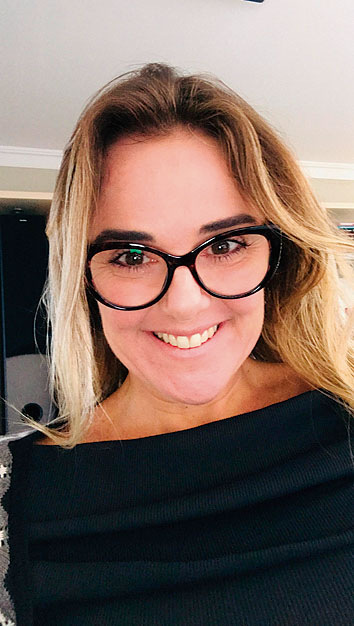
Gabriela emphasizes the need for aero-agriculture companies to outline their sustainability goals
Some aero-agriculture companies are already living this reality. She cites as an example those that provide services to the sugar cane and forestry sectors, major exporters, which already have very high ESG requirements. Operators have even asked her for guidance on how to complete a GHG Protocol report – a document that presents the results of the inventory of greenhouse gas (GHG) emissions in Brazil; how to create a materiality matrix. Others asked which certifications they should look for. “Anyone who doesn’t anticipate this will lose competitiveness,” says Gabriela.
Alignment with good practices are differentials
The companies of Grupo Precisão, based in Catalão/GO, are among those that have joined BPA Brasil. And the changes are already being felt in the organization’s structure. “Our companies have started to work in a more coordinated way, with divisions of tasks by people and departments. It will certainly contribute a lot to our growth,” said agronomist Isabela Freires Gonçalves, technical manager and administrative manager of Precisão Aeroagrícola and Jaíba Aviação Agrícola, which make up the group, as well as Precisão Abastecimentos.
Among the advances noted by the manager are professionals who are more committed to the company’s performance and improved communication, which has become clearer and more objective. Important predicates in an increasingly dynamic market. According to the Group’s director, João Gonçalves Júnior, as well as strategic management being fundamental, the company needs to be aligned with good practices. “The market demands commitment and responsibility,” he says.
To this end, the operators, which have 28 aircraft and operate from five bases – distributed between Goiás, Minas Gerais and São Paulo – invite their employees to take part in training courses. In fact, one of the editions of the Agricultural Pilots Refresher Course, offered by Ibravag, was held at the Group’s headquarters as a way of encouraging its captains to take the workshop.
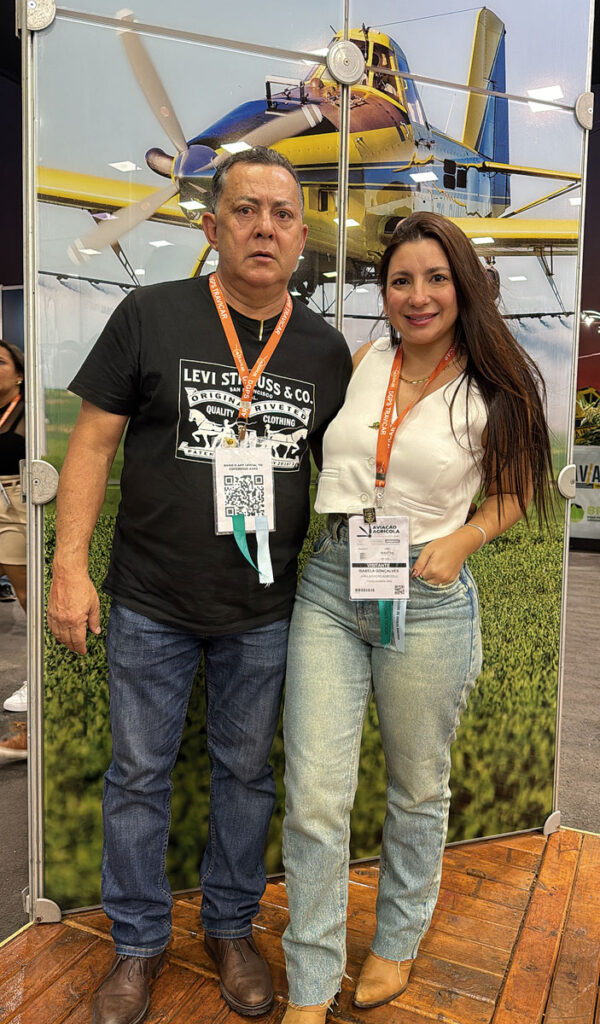
The managers of Grupo Precisão’s aeroagricultural area, Júnior and Isabela, are already reaping the results of the knowledge they acquired at the BPA.
Sustainability is the keyword to stay in business
“If you don’t respect the environment, if you don’t respect the rules, if you don’t work responsibly, you won’t survive in agricultural aviation,” says André Luiz Perri, managing partner of Aeronorpa – Aero Agrícola Norte Paraná. The agricultural pilot, who runs the company together with his brothers – agricultural technician Daniel Augusto Perri and agronomist Marcelo Perri – enrolled the company in the Good Agricultural Practices (BPA) Brazil program. And he confesses that he hasn’t regretted it. The Ibravag initiative in partnership with Sebrae Nacional, with support from Sindag and CropLife Brasil, is based on pillars that help companies adopt strategic management, making them more competitive, including training, mentoring and a series of courses. For André Perri, the program has given a new impetus to the operator based in Sertaneja/PR, created in 1983 by his father, also an agricultural pilot Gilberto Carlos Perri (who has already passed away).
“This work was very important for us to professionalize the company,” he acknowledges, saying that he is gradually putting the lessons learned into practice. With more than 40 years in the market, Aeronorpa is typically a family business. Even his mother, Maria Elena Barduzzi Perri, has taken on the administrative tasks in the office, including receiving inspectors when her children are attending to clients.
QUALITY
Today, with two Ipanema aircraft and a registered agricultural pilot, with whom André Perri shares crop applications, among other employees, the goal is to grow. The construction of a new decontamination yard is already underway and plans include the acquisition of an Air Tractor. To achieve this, he is betting on efficiency in the field.

Aeronorpa has invested in management and was one of the companies that joined the BPA.
“We put quality first. We’ve even turned down work because we couldn’t apply it properly,” says André Perri. He also recalls that when he is called to a new area, he first analyzes the map to make sure there are no obstacles to the application, both in operational and environmental terms.
He strives for consistency in service through the qualification of his employees. “We’re taking courses as opportunities arise, and we’ve even invested in employee training,” says the manager. As an example, one of his employees, who is responsible for preparing the mixture and cleaning the aircraft, has not only been technically qualified in agronomy, but has also taken several courses, including pesticide handling and operational safety.

